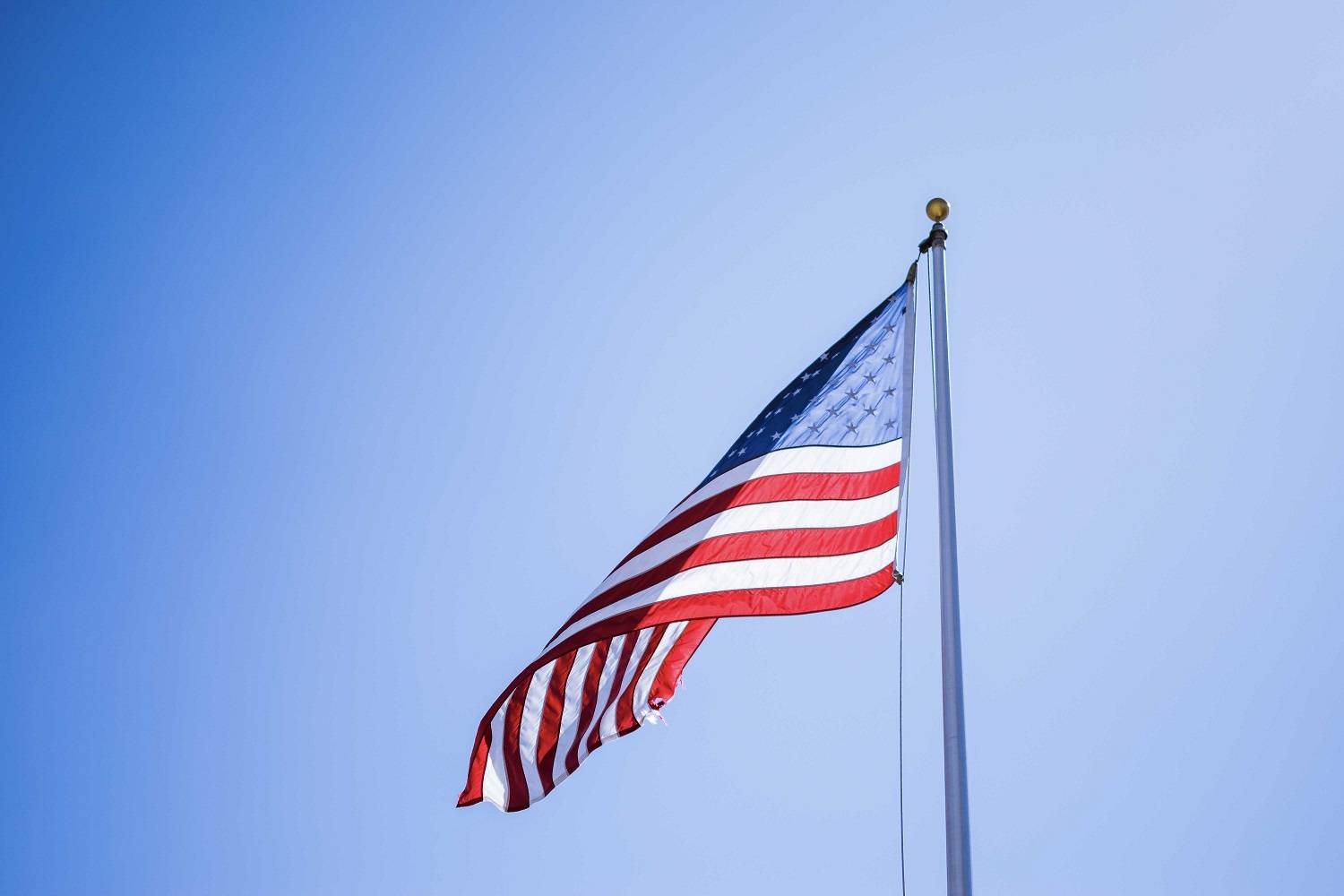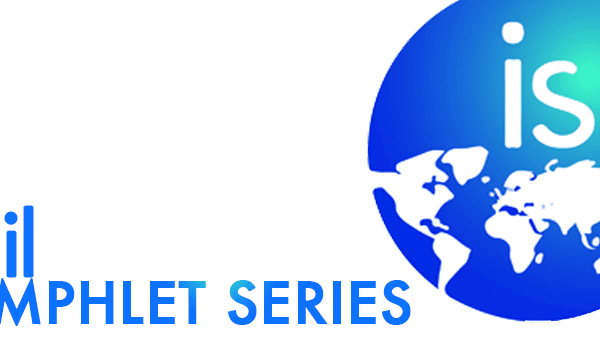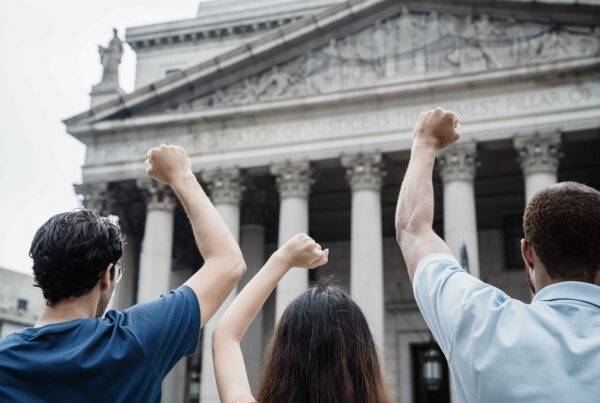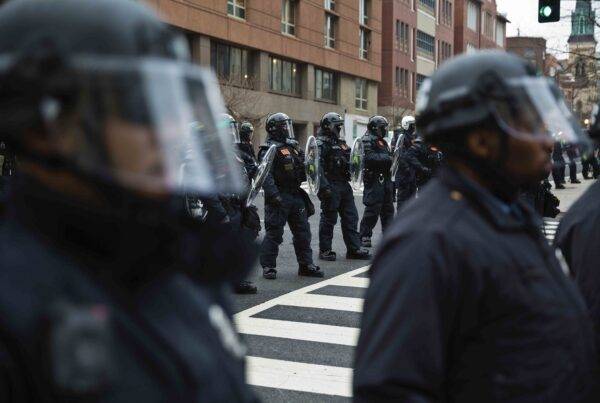by Larry Dodge & Don Doig
edited by Mark Valverde & Larry Dodge
“For more than six hundred years – that is, since Magna Carta, in 1215, there has been no clearer principle of English or American constitutional law, than that, in criminal cases, it is not only the right and duty of juries to judge what are the facts, what is the law, and what was the moral intent of the accused; but that it is also their right, and their primary and paramount duty, to judge of the justice of the law, and to hold all laws invalid, that are, in their opinion, unjust or oppressive, and all persons guiltless in violating, or resisting the execution of such laws.”
Lysander Spooner
“An Essay on The Trial By Jury,” 1852
America’s founders worried that the government they created might someday grow too powerful, passing and enforcing laws which would violate the rights of the very people it was intended to protect: ordinary, peaceful, productive folks. So they kept an “ace in the hole,” a trump card they believed citizens could and would use to hold this new, experimental government in check. That ace was the right to a trial by a jury of one’s peers.
How can a jury restrain a government? Answer: Juries can just say “no” to bad laws and to arbitrary and unjust prosecutions. It’s that simple!
The Founders realized that the temptations of power and corruption would eventually prove to be too much for any of the three branches of our government to resist, let alone check and balance the other branches. They knew that to have a government “of, by and for the people”, the people would routinely have to assert their authority over the leadership, and would need the power to check and balance all three branches. Because law is the main tool by which a government exerts control, trusting juries of ordinary citizens to decide if and when to apply the laws of the land was the logical way to perpetuate citizen authority over government.
That is why they provided for trial by jury once in the Constitution, and twice more in the Bill of Rights. In those days, it was part of the definition of the word “jury” that its members are judges of the law as well as the evidence. Noah Webster, who wrote his original 1828 dictionary in order to preserve the integrity of the language in our Constitution, defined “jury” exactly that way.
In the courts of our new nation, judges would often remind jurors of their veto power, so that they began their deliberations fully-informed. If the jury found the law to be wrong or wrongly applied, or that the defendant’s rights had been violated during the arrest, it would often “veto” (refuse to apply) the law, and acquit, despite clear evidence of “guilt”.
In addition to veto power, our common-law legal traditions also provide that if a jury decides to acquit, its decision is final. A verdict of “not guilty” cannot be overturned. Jurors can not be harassed by the judge for voting to acquit. Jurors can not punished for voting their consciences, even after being sworn to follow the law as given by the judge. Jurors may be asked, but cannot be obliged, to explain their verdicts.
Citizen jurors fought against the powerful interests of the British crown for centuries to establish these rights, and secured them about the time the American colonies were established. But victory didn’t come easily:
In 1670, William Penn was arrested in London for preaching a Quaker sermon, which broke a law establishing the Church of England as the only legal church. His jurors, led by Edward Bushell, refused to convict him, despite being sequestered for days without food, water, tobacco or toilet facilities – and then fined. The most defiant four of them refused to pay the fine and were then put in prison for nine weeks.
The highest court of England, upon releasing them, both acknowledged and established that trial jurors could not be punished for their verdicts. Recognition of our freedoms of religion, peaceable assembly and speech thus all trace to the exercise of jury power, wielded by a jury unintimidated by government judges.
In colonial America, the sedition trial of John Peter Zenger established another legal landmark. Zenger, a publisher, was tried for printing news about corruption on the part of the Royal Governor of New York Colony and his cronies. His accusations were true, but the court informed his jury that by law, “. . . truth is no defense.”
“Philadelphia lawyer” Andrew Hamilton then told the jurors the story of William Penn, and argued that as judges of the merits of the law, they should not in good conscience find Zenger guilty of violating such a bad law. The jurors agreed. Zenger was acquitted in about fifteen minutes, and his case spawned recognition of our right to a free press, and truth as a defense in trials for libel.
America’s Founders
Cases like these therefore were part of the political heritage of America’s Founders, which may explain why they had such great appreciation for jury power.
President John Adams said it well in 1771:
“It is not only . . . [the juror’s] right, but his duty . . . to find the verdict according to his own best understanding, judgment, and conscience, though in direct opposition to the direction of the court.”
First US Supreme Court Chief Justice John Jay, writing in Georgia v. Brailsford, 1794, concluded:
“The jury has the right to judge both the law as well as the fact in controversy.”
President Thomas Jefferson in 1789 told Thomas Paine:
“I consider trial by jury as the only anchor yet devised by man, by which a government can be held to the principles of its constitution.”
However, during the next century, judges began chipping away at this vital and fundamental right of free citizens, thereby transferring citizen power to themselves. The biggest “chip” or usurpation took place in 1895, when in Sparf and Hansen v. U.S., a bitterly split decision by our Supreme Court held that failure of the judge to remind the jurors of their powers was not a basis for mistrial or appeal. That was the green light for trial judges to quit explaining jury nullification to juries, and to forbid lawyers to tell them.
That is why very few lawyers or law professors, only some judges, and practically no school teachers now know about jury veto power: it’s “not part of the curriculum.” Few history books give juries the credit they’re due – for stopping the Salem witch trials, for overturning slavery in state after state before the Civil War, and for ending Prohibition – all by refusing to convict because they thought the law itself was wrong.
These days, trial by jury often doesn’t accomplish all that it should. And the usurpation continues: trial judges now falsely tell jurors that their only job is to decide if the “facts” are sufficient to convict, and that if so, they “should” or “must” convict. Defense attorneys can be slapped with contempt of court charges if they tell jurors they can acquit if they think the law is invalid, misapplied, or unjust. And self-defenders are usually stopped and rebuked if they even mention their motives for breaking the law, or why they disagree with the law, to the jury.
Yet to this day, trial jurors still have the right to veto, or to “nullify” bad laws, though they are rarely told this by the courts. Prosecutors and judges try to exclude people from serving on juries who admit knowing they can judge the law, or who have doubts about the merits of the law. This practice destroys the protections jurors were supposed to be able to invoke on behalf of fellow citizens against unjust prosecutions. It also contradicts the Supreme Court’s pronouncement that juries should re present a “fair cross-section of the community.”
We, the American people, urgently need to reassert control of our various governments – particularly, the federal government, all of which seem bent on achieving nearly complete top-down control over all of us. Their favorite technique is to pass and enforce laws which create “crimes against the state,” where no victim (except perhaps the perpetrator) exists. This means the government can make absolutely anything illegal, and begin prosecuting anyone it doesn’t like for these “political crimes.” Those convicted fill our jails and cause a statistical “crime wave,” which the government then uses as a basis for passing and enforcing still more such laws.
These laws have already infringed on many of our rights, including our right to express ourselves freely; to practice the religion of our choice; to decide with whom we will do business; to make decisions about our own life, health, and death; to choose the school curriculum to which our children will be exposed; to decide whether or not to self-medicate; to enjoy personal privacy unless a proper search warrant is served; to travel and transport ourselves where and how we wish; to keep and bear arms (just in case we need to protect ourselves from our very own government); to enjoy the fruits of our labors; to pursue happiness as we define it; and to be tried by an impartial jury!
Spread the good word – to friends, family, and co-workers. You can also tell fellow jurors, but do not bring any printed information about jury power into the deliberation room.
Jury rights education has already reached jurors in victimless crime cases ranging from marijuana possession to tax-evasion, from seatbelt law violations to sales of “unapproved” nutritional supplements, and from “illegal” gun ownership to alleged poisoning of eagles by a Montana sheep rancher, many of them ending in acquittals.
The sooner everyone knows the truth about his or her rights and powers as a trial juror, the more quickly we can all get back to pursuing the American Dream, instead of worrying about what Big Brother is going to do to us next.
Big Brother’s next move may be to try and stop trial jurors from acting as a final check and balance upon his actions, so your first moves may have to be defensive.
Oppose any effort you hear about to “improve” the jury system which calls for:
- reducing the number of people on a jury;
- allowing juries to reach verdicts with “super-majority,” instead of unanimous votes;
- making it easier to remove “hold-out” jurors from juries;
- using “professional” juries (i.e., government-certified jurors, instead of ordinary citizens);
- prosecuting jurors who don’t answer jury questionnaires or the questions asked during jury selection the way the government wants them answered;
- eliminating the right of trial by jury for “less serious” crimes; or
- instituting any other measure which would reduce the power of the people and increase the power of the government when it comes to dispensing justice by jury.
The government can’t and won’t fix itself. It will require a grass-roots effort and a winning strategy, and that’s what the Fully Informed Jury Association is all about.
If you want to see a return of “liberty and justice for all” in America, this is how . . . and your children will thank you!
Larry Dodge and Don Doigare co-founded The Fully Informed Jury Association(FIJA)
The American Jury Institute (Fully Informed Jury Association), is a national, non-profit, tax-exempt, educational organization dedicated to informing jurors of their right, power, and responsibility to reach a verdict according to conscience. AJI headquarters is prepared to assist people from nations worldwide in pursuit of Fully Informed Jurors everywhere.
American Jury Institute
(Fully Informed Jury Association)
P.O. Box 5570, Helena, MT 59604-5570
Tel: (406) 442-7800. Fax: (406) 442-9332
Web sites:
www.americanjuryinstitute.org
www.fija.org
This pamphlet was originally published in 1991 and revised in September 1999. It is part of ISIL‘s educational pamphlet series. Click here for the full index of pamphlets online.




